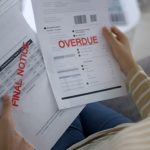In the world of insurance, one unfortunate reality is the prevalence of fraud. Insurance fraud can be broadly classified as any act committed with the intent to obtain a fraudulent outcome from an insurance process. It’s not only illegal but also increases the overall cost of insurance, which affects every policyholder. In this blog post, we will explore how to recognize and prevent insurance fraud scams.
Understanding Insurance Fraud
Insurance fraud occurs in various forms. It can be as simple as inflating the amount of a claim or as complex as staging accidents, injuries, theft, arson, or other losses that would be covered under an insurance policy. It’s not just policyholders who can commit insurance fraud; insurers and agents can also engage in fraudulent activities, such as selling fake insurance policies.
Recognizing Insurance Fraud
To protect yourself from insurance fraud, it’s crucial to recognize common signs:
1.Misrepresentation in Applications: An applicant may provide false information or fail to disclose important information to get a lower premium or qualify for a policy.
2.Exaggerated Claims: A policyholder may exaggerate a legitimate claim, adding extra damages that didn’t occur or inflating the value of lost or damaged items.
3.Faked Damages or Losses: Some fraudsters may stage accidents or damages, or claim for items they never owned or losses that never happened.
4.False or Inflated Medical Billing: This involves medical providers or policyholders who submit false or inflated medical bills to insurers.
5.Illegitimate Insurance Sellers: Some fraudsters pose as insurance agents to sell bogus policies.

Preventing Insurance Fraud
While law enforcement and insurance companies continually work to combat insurance fraud, individuals also play a crucial role in prevention:
Be Informed: Understand the details of your insurance policies. This knowledge will help you detect if something is amiss and prevent you from falling for scams.
Verify Credentials: Before purchasing a policy, verify the agent’s and insurer’s legitimacy. Check with your state’s insurance department or use the National Association of Insurance Commissioners’ (NAIC) database.
Be Honest: Always provide accurate information on your insurance applications and claims.
Secure Personal Information: Protect your personal information to prevent identity theft. Be wary of unsolicited contacts asking for personal data and never provide information unless you’ve verified the request’s legitimacy.
Report Suspicious Activity: If you suspect insurance fraud, report it to your insurer and to your state’s insurance fraud bureau or another appropriate authority.
Insurance fraud is a serious crime that has significant financial and societal impacts. By being aware of the common signs of insurance fraud and taking steps to prevent it, you can protect yourself and contribute to the broader fight against this crime.
everyone pays the price for insurance fraud through higher premiums and increased costs of goods and services. Therefore, preventing insurance fraud is not just a matter of personal protection but also a contribution to the financial health of our communities.


















